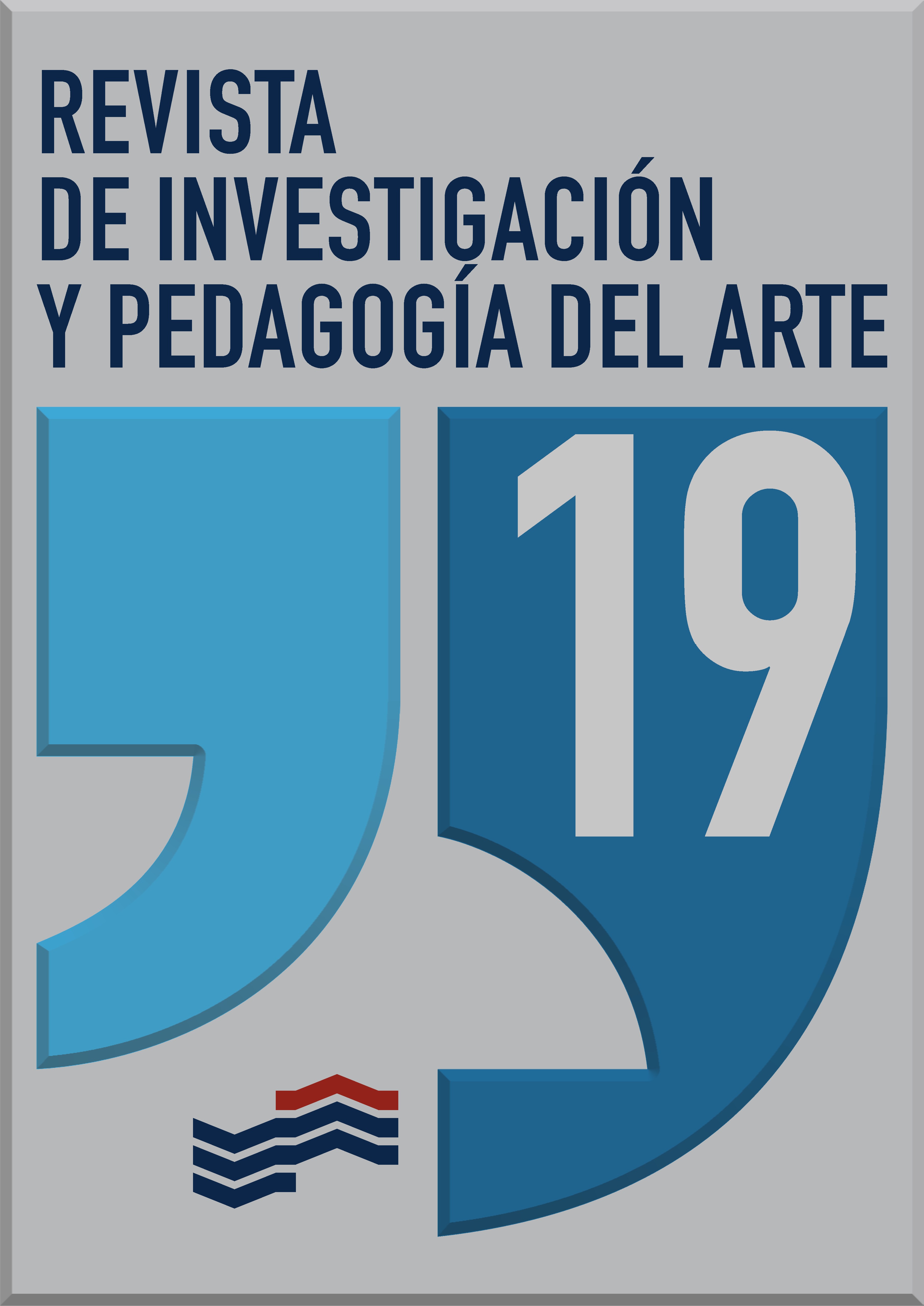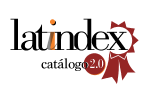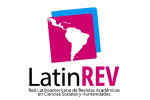Art learning and co-construction of identities. The case of a community of artistic practice
DOI:
https://doi.org/10.18537/ripa.19.07Keywords:
Learning, Art, Community of artistic practice, Identity, ChoreutasAbstract
The main objective of this paper is to describe the characteristics of art learning and the co-construction of identities in the participants of an artistic group of choral singing that belongs to a national university in Argentina. Regarding methodological aspects, a qualitative case study was carried out; We worked with the director of the artistic cast and nine choreographers who attended the context during the second quarter of 2022. As data collection tools, semi-structured interviews and observations were used. The results obtained are organized into two sections: characteristics of the community of artistic practice (taking into account the domain, community and practice dimensions) and aspects of identity (paths of artistic participation, sense of belonging to the choral community, self-knowledge and expression through artistic work). Finally, the conclusions are presented where we reflect on what was developed.
Downloads
References
Alexander, P. y Winne, P. (2006). Afterword. En P., Alexander y P. Winne. (Eds.), Handbook of Educational Psychology (p. 981-984). (Segunda edición). Lawrence Erlbaum Associates.
Alheit, P. (2018). Biographical learning–within the lifelong learning discourse [Aprendizaje biográfico: dentro del discurso del aprendizaje a lo largo de la vida]. En K., Illeris. Contemporary theories of learning: learning theorists... in their own words. (p. 153-165). Routledge.
Barron, B. y Bell, P. (2016). Learning environments in and out of school. En L, Corno. y E, Anderman. (Eds). Handbook of Educational Psychology (p. 323-335). (Tercera edición). Routledge.
Berruezo, C. y Morón, M. (2021). La construcción de la identidad a través del arte en personas en riesgo de exclusión social. Arteterapia. Papeles de arteterapia y educación artística para la inclusión social, 16, 11-22. https://doi.org/10.5209/arte.71152
Bruner, J. (2018). Culture, mind and education [Cultura, mente y educación]. En K. Illeris (Ed.), Contemporary theories of learning: learning theorists... in their own 13 words (p. 179-188). Routledge.
Chapato, M.E (2015). La enseñanza artística en contextos de diferentes grados de formalidad en la educación. Prácticas, formatos, sujetos y saberes. En H. Alderoqui., A. Álvarez., M. Chapato., P. Del Río., M. Regatky., A. Silvestri., M. Spravkin., Y. Volnovich. y Zanelli, M. (Eds.), Comunidades de aprendizaje y artes. Prácticas educativas y construcción de significados en la vida cotidiana (p. 91-114). Noveduc.
Cobo Romaní, C. y Moravec, J. (2011). Aprendizaje Invisible. Hacia una nueva ecología de la educación. Col·lecció Transmedia XXI. Laboratori de Mitjans Interactius / Publicacions i Edicions de la Universitat de Barcelona.
Corno, L. y Anderman, E. (2016). Handbook of Educational Psychology. (3a ed.). Routledge.
Flick, U. (2015). El diseño de investigación cualitativa. Morata.
Guitart, M. E.; Nadal. J. M. y Vila, I. (2010). La construcción narrativa de la identidad en un contexto educativo intercultural. Límite. Revista de Filosofía y Psicología, 5 (21), 77-94. https://www.redalyc.org/articulo.oa?id=83613709004
Lave, J. y Wenger, E. (1991). Situated Learning: Legitimate Peripheral Participation. Cambridge University Press. https://doi.org/10.1017/CBO9780511815355
Martín, R. (2014). Contextos de aprendizaje. Formales, no formales e informales. IKASTORRATZA e-Revista de Didáctica, (12), 1-13. http://www.ehu.es/ikastorratza/12_alea/contextos.pdf
Martín, R. B., Rinaudo, M. C. y Paoloni, P. V. (2019). Comunidades. Estudios y experiencias sobre contextos y comunidades de aprendizaje. Eduvim. ISBN 978-987-699-558-0
Melgar, M. F. y Donolo, D. S. (2011). Salir del aula…Aprender de otros contextos: Patrimonio natural, museos e Internet. Revista Eureka sobre Enseñanza y Divulgación de las Ciencias, 8 (3), 323-333.
Mejía-Arauz, R. (2019). Comentario a la Parte II: Construcción Educación culturalmente sensible. En P. Hviid y M. Märtsin (Eds.), Culture in Education and Education in Culture. Tensioned Dialogues and Creative Constructions (p. 149-156). Springer.
Nolen, B. S. (2024). Taking a Situative Approach to Research in Educational Psychology. En P. A, Schutz y K. R, Muis (Eds.). Handbook of Educational Psychology (p. 119-138). (Cuarta edición). Routledge.
Rinaudo, M. C. (2019). El estudio de la identidad en el campo de la Psicología Educacional. En P. Paoloni., M. Rinaudo. y R. Martín (Comp.), Yo, Tú… Ellos y Nosotros. Competencias socioemocionales en la construcción de identidades profesionales (p. 21-74). Brujas.
Schachter, E. P. y Rich, Y. (2011). “Identity education: a conceptual framework for educational researchers and practitioners”. Educational Psychologist, 46 (4), 222-218.
Simons, H. (2011). El estudio de caso: teoría y práctica. Morata.
Snyder, W y Wenger, E. (2010). “Our World as a Learning System: A Communities-of-Practice Approach”. En C- Blackmore (Ed.), Social Learning System and communities of practices (p. 107-124). Springer.
Urbano, C. y Yuni, J. (2014). Técnicas para investigar: recursos metodológicos para la preparación de proyectos de Investigación. Brujas.
Vaja, A. B. y Manavella, A. M. (2021). Emociones y compromiso en diversos contextos de aprendizaje. En R. B. Martín, N. E. Palombo, A. M. Manavella, A. B. Vaja, J. M. Díaz Lozada y L. Garcia Romano (Eds.). Experiencias y aprendizajes en clave autobiográfica: aportes teóricos y prácticos sobre contextos, compromiso y emociones en la formación docente (p. 30-45). Universidad Nacional de Córdoba. Facultad de Ciencias Exactas, Físicas y Naturales.
Vergara, G. (2014). Reflexiones sobre las contribuciones de la observación participante para una Sociología de los cuerpos y las emociones. Revista Latinoamericana de Metodología de la Investigación Social, (6), 42-56.
Wenger, E. (2001). Comunidades de práctica. Aprendizaje, significado e identidad. Paidós Ibérica, S. A.
Wenger, E. (2011). Communities of practice: A brief introduction. http://wenger-trayner.com/
Wenger, E. (2018). A social theory of learning. En K. Illeris (Ed.). Contemporary Theories of Learning Theorists … In Their Own Words (p. 219-228). Routledge.
Wenger, E; McDermott, R. y Snyder, W. (2002). Cultivating Communities of Practice: A Guide to Managing Knowledge. Harvard Business School Press.
Wenger-Trayner, E., Wenger-Trayner, B., Reid, P. y Bruderlein, C. (2023). Communities of practice within and across organizations: a guidebook. Social Learning Lab.
Published
Issue
Section
License

This work is licensed under a Creative Commons Attribution-NonCommercial-ShareAlike 4.0 International License.










